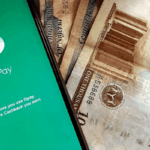If you have ever been to Alaba Market or Computer Village, you will find traders beckoning you offering discounts and deals as you pass by their stalls. If you decide to explore, you will find yourself walking through a row of shops and kiosks and hopefully your purchases will be for less than N500. When you're asked why you went through the stress, “At least I know I got value.”
This little phrase captures what I call the Extra Mile Discount. This is a psychological reward that Nigerians associate with the effort put into closing a deal. It's the invisible satisfaction bonus that comes from traveling farther, negotiating longer, or working harder for a lower price.
effort as value
Nigerian consumers often equate hard work with saving. Whether it's driving from Ozota to Mile 12 for cheap groceries or calling five mechanics before choosing one, the diligent search for value becomes a testament to prudence. The discount may be minor, but the story is priceless.
This mindset has its roots in effort justification, a concept from behavioral psychology that states that people value outcomes more when they put in the effort to achieve them. A study by Ariely and Norton (2009) confirmed that labor increases evaluation; Participants who created simple objects themselves valued them 63 percent more than similar pre-made versions (Journal of Consumer Psychology). It is central to the business strategy of Swedish DIY furniture group Ikea. Nigerians have adapted this trend to the market such that savings only seem real when sweat is involved.
distance as proof
EFInA research shows that Nigerian consumers often travel beyond their local area to secure better prices or perceived authenticity, even when transportation costs outweigh savings (EFInA Access to Financial Services Survey, 2020). The journey in itself holds symbolic importance. This demonstrates diligence and reduces the fear of being “betrayed.”
For consumers purchasing from open markets, distance often equates to reliability. Electronics bought clothes from “Alaba Market” or “Balogun Market”, they were trusted because they required effort to obtain. Even when similar products exist nearby, proximity sometimes indicates compromise, while distance indicates seriousness.
conversation as practice
The bargaining process mirrors a physical workout. Each round of pricing strengthens the buyer's belief that they have earned a discount. Sellers understand this dance. They create a “pull” in opening prices, giving buyers the satisfaction of a cut of the earnings. Without that back-and-forth, many Nigerians feel uneasy, as if they have skipped an essential ritual of fairness.
In interviews with Lagos market traders, researchers from the University of Lagos found that 78% deliberately inflated initial quotes to maintain room for negotiation, citing bargaining as “proof of seriousness” rather than deception. The exchange validates both parties. The buyer walks away confident that he has won. The seller maintains dignity by appearing flexible and not cheap.
computer economy
Transportation adds extra miles of leeway to daily life. A traveler can bypass a filling station in Ikeja to buy fuel in Ogba, where it is cheaper at N5 per litre. Logically, the savings disappear after the drive. Emotionally they gain control. Beating the system feels like a victory, especially in our volatile economy.
Behavioral economists call this mental accounting. The consumer separates transportation costs from purchase costs, views discounts as a benefit, and views travel as an independent endeavor. The longer the journey, the stronger the savings story.
digital paradox
Online shopping tests this habit. Nigerians often distrust deals that seem “too easy”. Clicking “Buy Now” lacks physical confirmation of the effort. To recreate the struggle, e-commerce sites now use flash-sales, countdowns, and limited-stock alerts. These tactics simulate the chase that consumers expect before earning a reward.
Platforms like Jumia and Konga saw higher conversion rates during such timed events. According to a 2023 Jumia report, timed offers increased sales by 42%, suggesting that the simulated effort (racing against the clock) triggers the same psychological satisfaction as traveling for discounts.
social signaling
Extra Mile discounts also act as social currency. Nigerians love to tell how they got it “cheap in mushin” or “straight from the factory”. The distance story elevates the buyer's status as a smart and resourceful consumer within his circle.
For Nigerians, resourcefulness means intelligence and bragging rights. Getting a discount proves street wisdom beyond savings. “Putting a good price on it” means showing merit.
implications for business
1. Accept the stalking. Marketing that recognizes effort (“You've earned this deal”) validates consumers' sense of accomplishment.
2. Engineer's struggle visible. Offer limited-time offers, loyalty milestones, or challenge-based rewards to recreate the satisfaction cycle.
3. Communicate original stories. Products that highlight the distance traveled or craftsmanship draw on the same psychology, suggesting that effort equals authenticity.
4. Simplify without insulting. While convenience sells, complete ease may seem questionable. Maintain small friction points that reassure buyers that they have earned value.
conclusion
The extra mile discount is linked to the protection of consumer dignity. Nigeria is a low-trust economy, so effort becomes a testament to wisdom. Nigerians want to feel that they have worked for their victory.
For businesses, the path that leads to the acquisition of your product or service is extremely valuable. The customer journey (literal or digital) holds emotional value. In Nigeria, effort is the proof of value.










